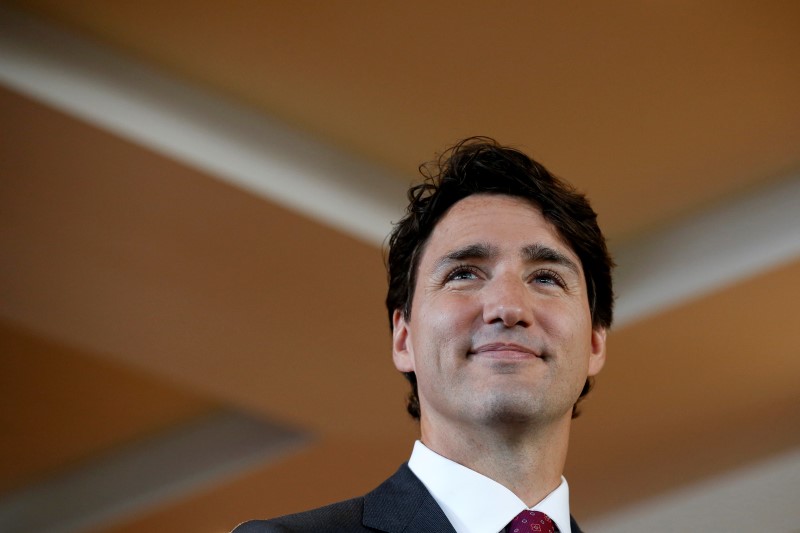By David Ljunggren
OTTAWA (Reuters) – Canada’s push for closer trade ties with China has slowed amid unease with the extent of economic access Beijing is asking for and its human rights record, several sources familiar with the matter said, impeding a top priority for Liberal Prime Minister Justin Trudeau. Trudeau, whose election win last year was warmly welcomed by Chinese leaders, may also trim plans for a full week visit to China ahead of a G20 summit in September, deciding instead to take a shorter, more symbolic trip with less focus on trade than initially predicted. Trudeau, 44, promised to concentrate on expanding trade with China and India when he took office in November, seeking to help spark a sluggish export sector. But the sources said Ottawa did not fully appreciate how challenging it would be to handle an increasingly assertive China. “Nothing substantive is going to happen quickly,” said one person close to the matter. “This is a process that will take a decade.”
Trudeau is popular in Beijing, which favorably recalls his father Pierre Trudeau, who established diplomatic relations with China in 1970 while he was prime minister.
China has tried hard to woo Trudeau, who was the guest of honor at a special Chinese reception in Ottawa in January which featured rare photos of his father in the Chinese capital.
But despite the friendly overtures, Canadian officials are resisting China’s push for a free trade deal similar to the one it signed with Australia.
Last month, Trudeau told the Vancouver Sun newspaper a free trade deal should not be rushed, citing concerns over human rights.
Another major factor slowing the potential for closer ties is a lack of agreement inside Ottawa about how much to open up Canadian markets, political sources said.
Enthusiasts inside the bureaucracy stress that unless Ottawa moves quickly, it will be left out as Beijing seeks partners elsewhere. Skeptics worry about giving China more influence, especially over sensitive areas. “Would we really open up our telecommunications sector to China?” said one person close the matter.
The Liberals want to energize an anemic export sector they say is overly dependent on the United States, which took 78 percent of all Canadian goods shipped abroad in May – the highest proportion for almost a decade. Canada ran its two biggest trade deficits ever in April and May of this year. Bilateral trade with China in 2015 totaled just C$85.3 billion ($65.1 billion), with Canada running a C$45.9 billion deficit, according to Statistics Canada. By contrast, 2015 two-way trade with the United States was C$651.7 billion. China’s embassy in Ottawa said it was unable to respond to requests for comment in time. The office of Trade Minister Chrystia Freeland said Canada and China “see this as a long-term relationship” and the two sides were “building a deep foundation and technical knowledge of one another”. In 2012, concerns about China gaining undue influence prompted the former Conservative government to ban foreign state-owned enterprises from taking majority stakes in oil sands firms.
The Conservatives were also very critical of China’s human rights record and opinion polls at the time showed most Canadians were nervous about closer relations with China, a trend that has continued. A Nanos Research poll in February 2016 showed 76 percent of Canadians had a negative image of China and officials close to the file say sensitivity over human rights is another complicating factor. “For too long we have had two tracks with China – trade and everything else. We need to be having one conversation,” said a government source, noting that pressing China on human rights could help assuage public concerns about tighter ties. (Reporting by David Ljunggren; Editing by Alan Crosby)
Canada’s push for closer China trade ties hits problems: sources

By David Ljunggren
















